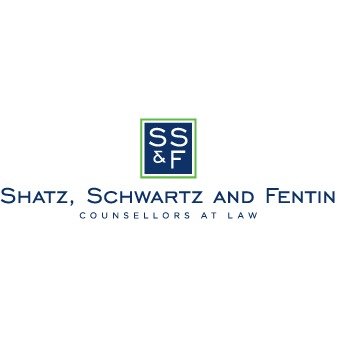Best Elder Law Lawyers in Massachusetts
Share your needs with us, get contacted by law firms.
Free. Takes 2 min.
Or refine your search by selecting a city:
List of the best lawyers in Massachusetts, United States
United States Elder Law Legal Questions answered by Lawyers
Browse our 2 legal questions about Elder Law in United States and read the lawyer answers, or ask your own questions for free.
- Hi, I like to get the information about my deceased sister government pension in Sind Govt.
- I am living in usa and my sister was the govt employee in pakistan about 25 to 27 years. she was unmarried and my parents also passed. I like to know who will the benifits after her death. She passed during her job. I really appreciate it if you guide... Read more →
-
Lawyer answer by A A Abdullahi Law Firm
Hello, Her next of kin will be you and so you shall be the one to receive the benefits and her properties. You can contact us vfor assistance on the documentation and procession
Read full answer - How to protect property from squatters law
- Deed in my mom's name. She died 18 years ago. Son is named as administrator but not as owner. We live in USA so let Non relative live there for 45-50 year but had no formal contract. Let him live there free as long as he paid utilities and taxes.... Read more →
-
Lawyer answer by M BILAL ADVOCATES, CORPORATE & TAX CONSULTANTS
After completing probate to establish yourself as the legal heir, you can transfer the property title to your name and then grant them permission to reside there through a formal agreement. It is worthy to note that you can do...
Read full answer
About Elder Law in Massachusetts, United States
Elder Law is a specialized area of legal practice focusing on the needs and rights of older adults, their families, and caregivers. In Massachusetts, Elder Law covers a broad range of issues, such as estate planning, guardianship, long-term care planning, and protection against elder abuse. The goal of Elder Law is to ensure that the legal, financial, and healthcare needs of seniors are effectively addressed while safeguarding their dignity and autonomy.
Why You May Need a Lawyer
Elder Law issues can involve complex legal and financial considerations. You may need a lawyer in a variety of situations, including:
- Planning for nursing home or assisted living facility care
- Protecting assets from the high cost of long-term care
- Creating or updating wills, trusts, and powers of attorney
- Applying for government benefits, such as Medicaid (MassHealth) or Social Security
- Handling guardianship or conservatorship proceedings
- Addressing elder abuse, neglect, or exploitation cases
- Resolving disputes related to the management of a loved one’s estate
- Ensuring healthcare wishes are honored through advance directives
- Advising on tax implications for estates and trusts
- Navigating probate and estate administration
Legal representation can help prevent costly mistakes, reduce family conflicts, and make sure that your or your loved one’s rights are protected throughout the process.
Local Laws Overview
Massachusetts has specific laws and regulations that affect seniors and their families. Here are some key aspects:
- MassHealth (Medicaid) Planning: Massachusetts has its own rules for determining eligibility, income, and asset limits for long-term care coverage. Proper planning is required to preserve assets and avoid penalties.
- Durable Power of Attorney and Health Care Proxy: State law allows for the appointment of trusted individuals to manage financial and healthcare decisions if someone becomes incapacitated.
- Guardianship and Conservatorship: Probate courts oversee the appointment of guardians or conservators when individuals can no longer make decisions on their own. Massachusetts law provides specific procedures and protections for those involved.
- Protections Against Elder Abuse: The Elder Protective Services Program helps to identify and address abuse, neglect, and financial exploitation of elders. Mandatory reporting laws require certain professionals to report suspected abuse.
- Probate Process: Massachusetts has a simplified probate process for smaller estates, but larger or contested estates may require formal probate proceedings.
- Homestead Protection: State law provides homeowners aged 62 and older with increased protection against creditors through a declared homestead exemption.
Frequently Asked Questions
What is Elder Law?
Elder Law is a legal practice area focusing on legal issues commonly affecting people as they age, including estate planning, health care, asset protection, guardianship, and protecting against elder abuse.
When should I consider hiring an elder law attorney in Massachusetts?
You should consider hiring an elder law attorney when planning for long-term care, drafting estate documents, navigating Medicaid or MassHealth applications, handling probate, or if you suspect elder abuse or exploitation.
What is MassHealth and how does it relate to seniors?
MassHealth is Massachusetts’ Medicaid program. It provides health coverage and long-term care benefits for eligible low-income seniors. Qualification requires careful planning due to strict asset and income limits.
How can I protect my assets from nursing home costs?
An attorney can help with tools such as irrevocable trusts, proper gifting strategies, and other estate planning methods, but advance planning is key to maximizing asset protection options while maintaining MassHealth eligibility.
What is the difference between a health care proxy and a power of attorney?
A health care proxy allows someone to make medical decisions on your behalf if you become incapacitated, while a power of attorney authorizes someone to handle your finances and legal matters.
How do guardianship and conservatorship work in Massachusetts?
When an individual cannot make decisions due to incapacity, a probate court can appoint a guardian (for personal and health decisions) or conservator (for financial matters). The court monitors these appointments closely to protect the person’s interests.
What should I do if I suspect elder abuse?
Anyone can report suspected elder abuse to the Massachusetts Elder Abuse Hotline or a local Elder Protective Services agency. Certain professionals are legally required to report. Legal interventions may be necessary to protect the elder.
How does the probate process work for estates in Massachusetts?
The process involves validating the will (if there is one), paying debts and taxes, and distributing assets. Massachusetts allows for informal and formal probate procedures, depending on the complexity of the estate.
Are there estate or inheritance taxes in Massachusetts?
Massachusetts has an estate tax which applies if the estate is valued above a set threshold. There is no inheritance tax, but estate planning can help minimize or manage tax liabilities.
Can I handle elder law matters on my own without a lawyer?
While some tasks may be handled without legal help, Elder Law involves complex, evolving rules. Mistakes can be costly. Even if you do not need a lawyer for every step, a consultation can ensure you are on the right track.
Additional Resources
If you are looking for more information or assistance, consider these helpful resources:
- Massachusetts Executive Office of Elder Affairs - Provides a wide range of services, information, and protective services for elders
- Massachusetts Bar Association - Offers lawyer referral services and general legal information
- Massachusetts Legal Aid Organizations - Such as Greater Boston Legal Services, provide free or low-cost help for seniors who qualify
- Local Councils on Aging - Community-based services including elder law education and case management
- Massachusetts Probate and Family Court - Handles guardianships, conservatorships, and estate matters
- Massachusetts Elder Abuse Hotline - For reporting and addressing suspected abuse or neglect
Next Steps
If you or a loved one needs assistance with an Elder Law issue in Massachusetts:
- Gather relevant documents such as wills, medical directives, financial records, and identification
- Make a list of your questions and concerns
- Contact a qualified Elder Law attorney in your area for a consultation
- Consult your local Council on Aging or a legal aid organization if cost is a concern
- Follow up with recommended actions and keep records of communications and decisions
Addressing Elder Law issues proactively can safeguard your rights, assets, and personal wishes. Seeking professional guidance is the best way to navigate Massachusetts’ complex legal landscape for elders and their families.
Lawzana helps you find the best lawyers and law firms in Massachusetts through a curated and pre-screened list of qualified legal professionals. Our platform offers rankings and detailed profiles of attorneys and law firms, allowing you to compare based on practice areas, including Elder Law, experience, and client feedback.
Each profile includes a description of the firm's areas of practice, client reviews, team members and partners, year of establishment, spoken languages, office locations, contact information, social media presence, and any published articles or resources. Most firms on our platform speak English and are experienced in both local and international legal matters.
Get a quote from top-rated law firms in Massachusetts, United States — quickly, securely, and without unnecessary hassle.
Disclaimer:
The information provided on this page is for general informational purposes only and does not constitute legal advice. While we strive to ensure the accuracy and relevance of the content, legal information may change over time, and interpretations of the law can vary. You should always consult with a qualified legal professional for advice specific to your situation.
We disclaim all liability for actions taken or not taken based on the content of this page. If you believe any information is incorrect or outdated, please contact us, and we will review and update it where appropriate.
Browse elder law law firms by city in Massachusetts
Refine your search by selecting a city.













